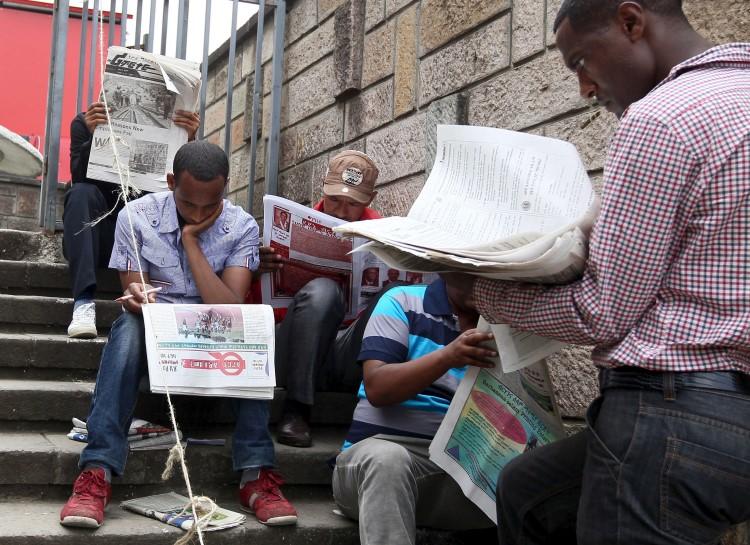Two journalists with the privately owned online news outlet Mereja TV were briefly detained by regional police and then attacked by a mob in Legetafo, a town in Ethiopia’s Oromia region, on February 23, 2019, Mereja TV CEO Elias Kifle told the Committee to Protect Journalists.
Reporter Fasil Aregay and cameraman Habtamu Oda were interviewing people displaced by recent home demolitions by authorities when they were detained by regional police, according to Elias.
The journalists were held for about an hour at the local police station and were asked by a commander why they had come to Legetafo without first informing the police, Elias told CPJ.
After their release, the journalists left the station and were attacked by a group of at least 10 young men, according to Elias and a journalist who spoke to witnesses at the scene but asked not to be named out of fear that their employer would not approve of talking with CPJ.
Habtamu escaped without injury but Fasil was beaten with sticks in plain view of the police, according to Elias and a statement issued by Mereja TV. Fasil suffered injuries to his neck, back, legs, and shoulders, Elias said.
The officers eventually made the attackers disperse, but did not arrest them, and took Fasil to a local clinic for treatment before his colleagues transferred him to a hospital in Addis Ababa, the capital; he has since been discharged, Elias said.
Police took Fasil’s camera after he was beaten, according to Elias. They held the camera until giving it to a Mereja TV employee on March 7; however, it was damaged beyond repair, Elias said.
Elias told CPJ that Mereja TV is not chiefly concerned with the fact that their reporters were detained by police; rather, he said, the problem was that the police had allowed “the attackers to leave without taking justice.” Elias said he spoke with federal police officials who told him they will investigate the matter.
Deressa Tefere, deputy of the Oromia Regional State Communication Bureau, told CPJ in an email on March 5 that authorities were aware that Fasil had been attacked and said that they were investigating. In a phone call with CPJ on March 5, Deressa disputed CPJ’s inquiry as to whether the journalists had been arrested, calling it a “false accusation.” CPJ attempted to clarify Deressa’s comments on March 7 and 8 via phone, text, and email, but did not receive a response.
Elias told CPJ that the attack on the Mereja TV journalists was “disappointing” precisely because conditions have been improving for the press in the country. Over the last year, authorities have released imprisoned journalists and lifted bans on numerous websites, including Mereja TV, according to CPJ’s reporting. For the first time since 2004, no journalists were in jail for their work in Ethiopia at the time of CPJ’s annual prison census on December 1, 2018.
